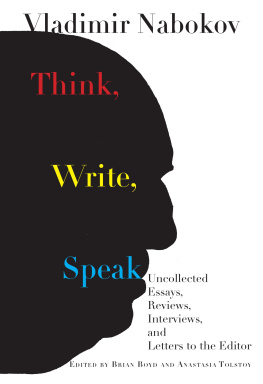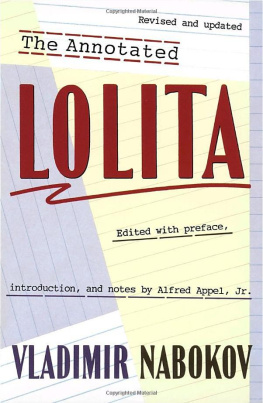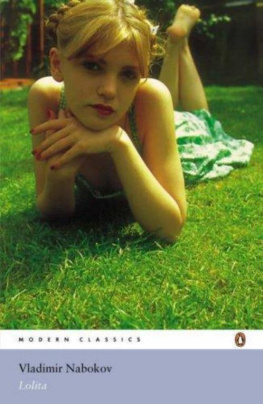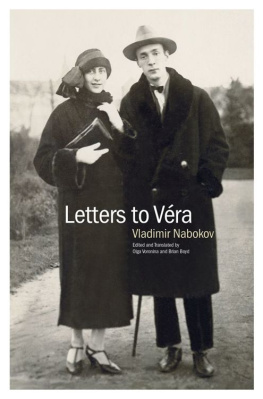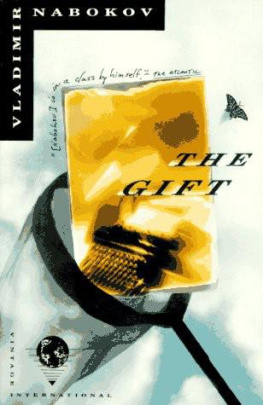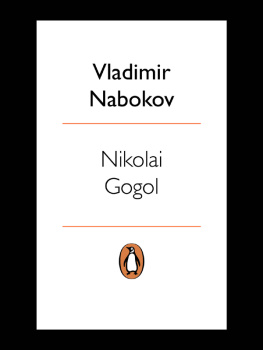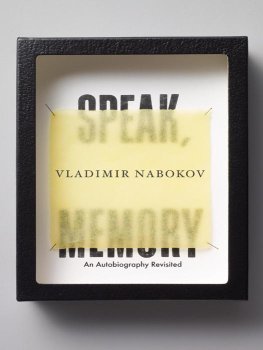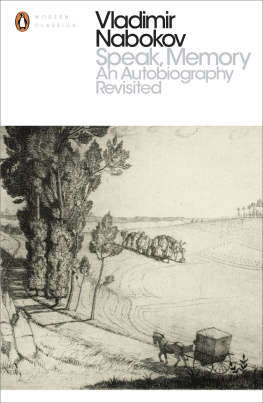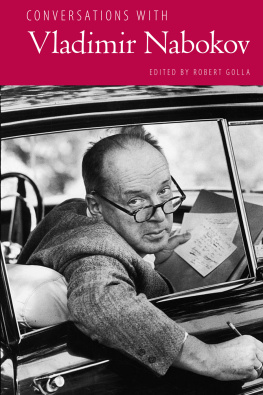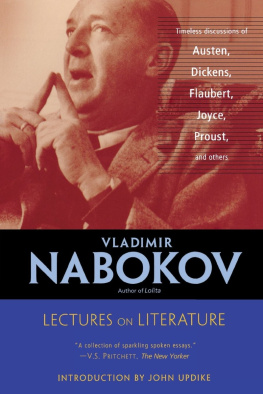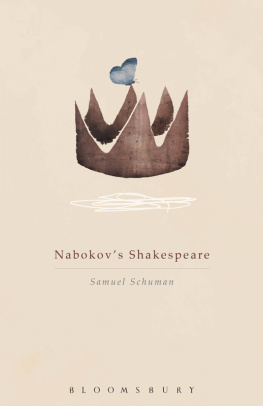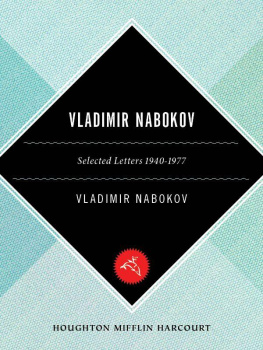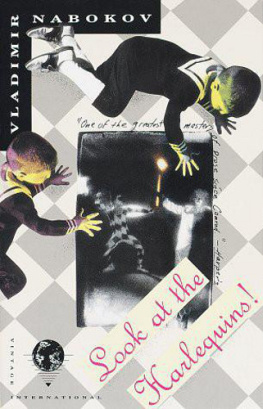Chapter 8
During the ten years that were to elapse between Hugh Person's first and second visits to Switzerland he earned his living in the various dull ways that fall to the lot of brilliant young people who lack any special gift or ambition and get accustomed to applying only a small part of their wits to humdrum or charlatan tasks. What they do with the other, much greater, portion, how and where their real fancies and feelings are housed, is not exactly a mystery there are no mysteries now but would entail explications and revelations too sad, too frightful, to face. Only experts, for experts, should probe a mind's misery.
He could multiply eight-digit numbers in his head, and lost that capacity in the course of a few gray diminishing nights during hospitalization with a virus infection at twenty-five. He had published a poem in a college magazine, a long rambling piece that began rather auspiciously:
Blest are suspension dots...
The sun was setting a heavenly example to the lake
He was the author of a letter to the London Times which was reproduced a few years later in the anthology To the Editor: Sir, and a passage of which read:
Anacreon died at eighty-five choked by "wine's skeleton" (as another Ionian put it), and a gypsy predicted to the chessplayer Alyokhin that he would be killed in Spain by a dead bull.
For seven years after graduating from the university he had been the secretary and anonymous associate of a notorious fraud, the late symbolist Atman, and was wholly responsible for such footnotes as:
The cromlech (associated with mieko, milch, milk) is obviously a symbol of the Great Mother, just as the menhir ("mein Herr") is as obviously masculine.
He had been in the stationery business for another spell and a fountain pen he had promoted bore his name: The Person Pen. But that remained his greatest achievement.
As a sulky person of twenty-nine he joined a great publishing firm, where he worked in various capacities research assistant, scout, associate editor, copy editor, proofreader, flatterer of our authors. A sullen slave, he was placed at the disposal of Mrs. Flankard, an exuberant and pretentious lady with a florid face and octopus eyes whose enormous romance The Stag had been accepted for publication on condition that it be drastically revised, ruthlessly cut, and partly rewritten. The rewritten bits, consisting of a few pages here and there, were supposed to bridge the black bleeding gaps of generously deleted matter between the retained chapters. That job had been performed by one of Hugh's colleagues, a pretty ponytail who had since left the firm. As a novelist she possessed even less talent than Mrs. Flankard, and Hugh was now cursed with the task of healing not only the wounds she had inflicted but the warts she had left intact. He had tea several times with Mrs. Flankard in her charming suburban house decorated almost exclusively with her late husband's oils, early spring in the parlor, surnmertime in the dining room, all the glory of New England in the library, and winter in the bedchamber. Hugh did not linger in that particular room, for he had the uncanny feeling that Mrs. Flankard was planning to be raped beneath Mr. Flankard's mauve snowflakes. Like many overripe and still handsome lady artists, she seemed to be quite unaware that a big bust, a wrinkled neck, and the smell of stale femininity on an eau de Cologne base might repel a nervous male. He uttered a grunt of relief when "our" book finally got published.
On the strength of The Stag's commercial success he found himself assigned a more glamorous task. "Mister R.", as he was called in the office (he had a long German name, in two installments, with a nobiliary particle between castle and crag), wrote English considerably better than he spoke it. On contact with paper it acquired a shapeliness, a richness, an ostensible dash, that caused some of the less demanding reviewers in his adopted country to call him a master stylist.
Mr. R. was a touchy, unpleasant, and rude correspondent. Hugh's dealings with him across the ocean Mr. R. lived mostly in Switzerland or France lacked the hearty glow of the Flankard ordeal; but Mr. R., though perhaps not a master of the very first rank, was at least a true artist who fought on his own ground with his own weapons for the right to use an unorthodox punctuation corresponding to singular thought. A paperback edition of one of his earlier works was painlessly steered into production by our accommodating Person; but then began a long wait for the new novel which R. had promised to deliver before the end of that spring. Spring passed without any result and Hugh flew over to Switzerland for a personal interview with the sluggish author. This was the second of his four European trips.
Chapter 9
He made Armande's acquaintance in a Swiss railway carriage one dazzling afternoon between Thur and Versex on the eve of his meeting with Mr. R. He had boarded a slow train by mistake; she had chosen one that would stop at the small station from which a bus line went up to Witt, where her mother owned a chalet. Armande and Hugh had simultaneously settled in two window seats facing each other on the lake side of the coach. An American family occupied the corresponding four-seat side across the aisle. Hugh unfolded the Journal de Genve.
Oh, she was pretty and would have been exquisitely so had her lips been fuller. She had dark eyes, fair hair, a honey-hued skin. Twin dimples of the crescentic type came down her tanned cheeks on the sides of her mournful mouth. She wore a black suit over a frilly blouse. A book lay in her lap under her black-gloved hands. He thought, he recognized that flame-and-soot paperback. The mechanism of their first acquaintance was ideally banal.
They exchanged a glance of urbane disapproval as the three American kids began pulling sweaters and pants out of a suitase in savage search for something stupidly left behind (a heap of comics by now taken care of, with the used towels, by a brisk hotel maid). One of the two adults, catching Armande's cold eye, responded with a look of good-natured helplessness. The conductor came for the tickets.
Hugh, tilting his head slightly, satisfied himself that he had been right: it was indeed the paperback edition of Figures in a Golden Window.
"One of ours," said Hugh with an indicative nod.
She considered the book in her lap as if seeking in it some explanation of his remark. Her skirt was very short.
"I mean," he said, "I work for that particular publisher. For the American publisher of the hard-cover edition. Do you like it?"
She answered in fluent but artificial English that she detested surrealistic novels of the poetic sort. She demanded hard realistic stuff reflecting our age. She liked books about Violence and Oriental Wisdom. Did it get better farther on?
"Well, there's a rather dramatic scene in a Riviera villa, when the little girl, the narrator's daughter "
"June."
"Yes. June sets her new dollhouse on fire and the whole villa burns down; but there's not much violence, I'm afraid; it is all rather symbolic, in the grand manner, and, well, curiously tender at the same time, as the blurb says, or at least said, in our first edition. That cover is by the famous Paul Plam."
She would finish it, of course, no matter how boring, because every task in life should be brought to an end like completing that road above Witt, where they had a house, a chalet de luxe, but had to trudge up to the Drakonita cableway until that new road had been finished. The Burning Window or whatever it was called had been given her only the day before, on her twenty-third birthday, by the author's stepdaughter whom he probably


